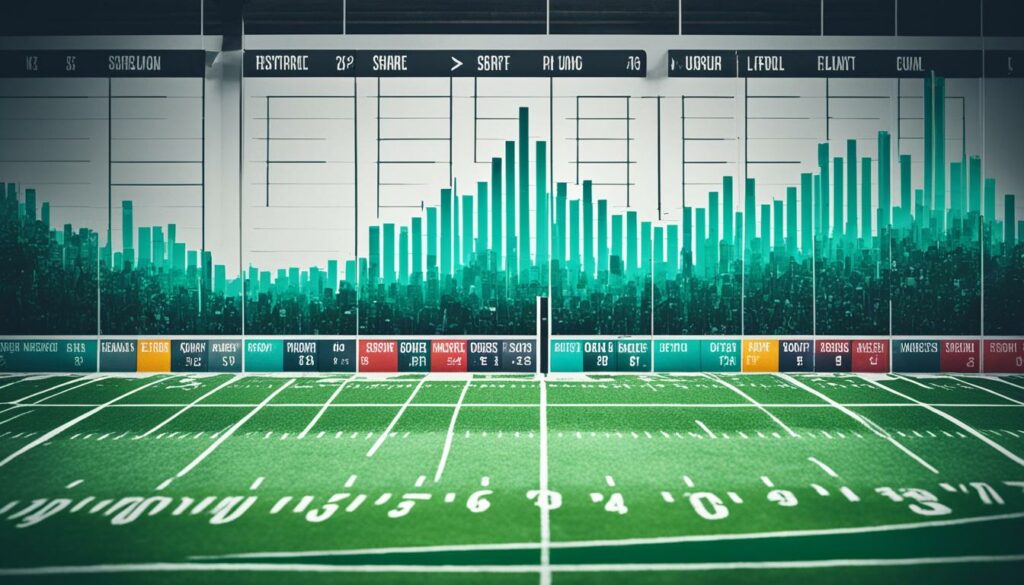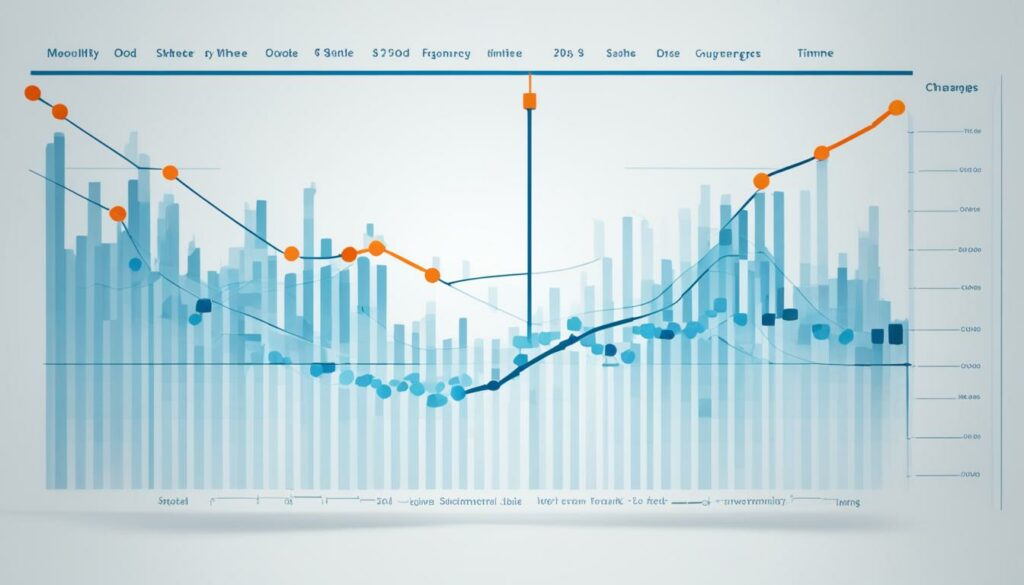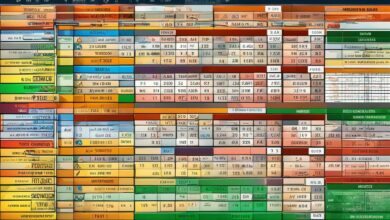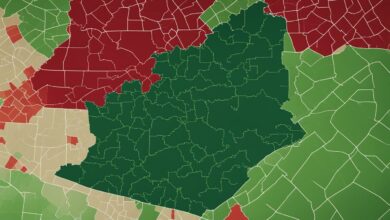Betting Odds Dynamics: How Often Do They Change?

Are you curious about the frequency at which betting odds change? Understanding the dynamics of betting odds fluctuations is essential for any sports bettor. In this article, we will explore the factors that influence these changes and provide insights into the frequency of odds movement in the world of sports betting.
Understanding Betting Odds and Fluctuations
In the world of sports betting, understanding how betting odds work is essential for making informed wagering decisions. Betting odds represent the probability of an outcome occurring and can fluctuate based on various factors and market conditions.
Live Odds Adjustments
During live events, such as a football match or horse race, betting odds can be adjusted in real-time to reflect the evolving circumstances of the game. These live odds adjustments take into account factors such as game status, player performance, and unexpected events that may impact the outcome.
Betting Odds Shift Rate
One key aspect of odds fluctuations is the rate at which they can shift. Betting odds can change rapidly based on market activity, big bets placed by high-profile bettors, or new information becoming available. The shift rate of betting odds can vary depending on the sport, the match importance, and the specific market.
Odds Variability in Betting
Betting odds can also exhibit variability across different betting markets. This variability can be attributed to the varying level of competition and the bookmakers’ assessment of the probabilities. Some markets may have more competitive odds, while others might offer more favorable odds for certain outcomes. Understanding this variability can help bettors identify value opportunities and maximize their potential returns.
Example: Live Odds Adjustments in a Football Match
Let’s consider a hypothetical football match between Team A and Team B. At the start of the game, the odds are set with Team A being the favorite, given their strong performance in previous matches. However, if Team B scores an early goal, the live odds may shift, making Team B the new favorite, reflecting their momentum and opportunity to win the game. These live odds adjustments happen dynamically throughout the match, providing opportunities for bettors to capitalize on favorable odds that align with their analysis of the game.
Factors Influencing Betting Odds Changes
In the world of sports betting, odds are constantly changing due to various factors that influence the betting market. Understanding these factors and how they impact odds in real-time is crucial for bettors looking to make informed decisions. Let’s explore some of the key factors that contribute to odds modifications and the frequency at which bookmakers update them.
The Impact of Team Form
One of the primary factors that can influence betting odds is the current form of the teams involved in a sporting event. Bookmakers closely monitor the performance of teams, taking into account factors such as recent wins, losses, and overall consistency. If a team is on a winning streak or has shown significant improvement, their odds of winning may decrease, reflecting the increased likelihood of a positive outcome.
Player Injuries and Suspensions
The availability and fitness of key players also play a crucial role in determining odds. Injuries or suspensions to key players can significantly impact a team’s performance and their chances of winning. Bookmakers adjust odds in real-time to reflect the absence or importance of certain players, ensuring that the odds accurately reflect the updated team dynamics.
Weather Conditions
Weather conditions can have a notable effect on certain sports, especially outdoor events. Events such as golf, tennis, and horse racing can be heavily influenced by weather factors such as rain, wind, or extreme heat. If weather conditions significantly affect the playing conditions or the performance of athletes, bookmakers may adjust odds accordingly to reflect the potential impact of these conditions on the outcome of the event.
Betting Market Activity
The betting market itself can influence odds as well. Bookmakers continuously monitor the betting activity and patterns of bettors. If there is a surge of bets on one particular outcome, bookmakers may adjust the odds to balance their risk and ensure the integrity of the market. Betting market activity can be a strong indicator of public sentiment and can lead to odds modifications in real-time.
Odds Update Frequency
Bookmakers strive to provide the most accurate and up-to-date odds to their customers. The frequency at which odds are updated may vary depending on the sport, event, and the bookmaker’s internal policies. In fast-paced sports such as soccer or basketball, odds may be updated in real-time to reflect the ongoing developments of the game. For other sports, odds may be adjusted less frequently, providing bettors with the opportunity to analyze trends and make strategic bets.

A Sample Table on Factors Influencing Odds Changes:
| Factor | Description |
|---|---|
| Team Form | Current performance and consistency of teams |
| Player Injuries and Suspensions | Impact of key players’ absence or fitness issues |
| Weather Conditions | Influence of weather factors on outdoor events |
| Betting Market Activity | Surge of bets on particular outcomes |
| Odds Update Frequency | Frequency of bookmakers updating odds |
Understanding Odds Movement Patterns
In the world of sports betting, understanding the patterns and frequencies of odds movements is crucial for both professional bettors and bookmakers. These movements reflect the dynamic nature of betting odds and provide valuable insights into the shifting dynamics of the market.
When it comes to odds movement frequency, there are several factors at play. Changes in odds can occur in response to new information, such as team news, injuries, or weather conditions. They can also be influenced by the betting market activity itself, as the balance of bets placed on different outcomes can cause odds to shift.
To illustrate this further, let’s take a closer look at two common scenarios:
1. New Information:
When significant news breaks, such as a key player being ruled out due to injury, bookmakers may adjust the odds to reflect the impact of this information on the outcome of the event. This can lead to rapid and significant odds movements, as bettors react to the news and adjust their bets accordingly.
2. Betting Market Activity:
The behavior of bettors can also influence odds movements. For example, if a large number of bets are placed on one particular outcome, bookmakers may adjust the odds to manage their exposure. This can result in odds shifting to attract more bets on the opposing outcome, thereby balancing their book and minimizing potential losses.
Professional bettors and bookmakers closely monitor odds movements to identify value and adjust their strategies accordingly. They analyze the patterns and frequencies of these movements to gain insights into market sentiment, identify potential arbitrage opportunities, and make informed betting decisions.

In conclusion, understanding odds movement patterns is essential for navigating the dynamic world of sports betting. By keeping a close eye on how odds change in response to new information and market activity, bettors can gain a competitive advantage and make more informed betting decisions.
Conclusion
Throughout this article, we have explored the fascinating world of betting odds dynamics and answered the question: how often do betting odds change? It is clear that betting odds are not stationary figures but rather constantly fluctuating, influenced by a myriad of factors.
Understanding the patterns and frequencies of odds movements is crucial for successful sports betting. By keeping a close eye on real-time odds modifications and odds update frequency, bettors can gain valuable insights into the current state of the betting market and make informed decisions.
Factors such as team form, player injuries, weather conditions, and betting market activity all play a role in influencing betting odds. Bookmakers continuously update odds to reflect new information and maintain a balanced book, ensuring that the odds accurately reflect the perceived probabilities.
By analyzing odds movements, professional bettors and bookmakers can identify value and adjust their strategies accordingly. It is important to note that while betting odds may change frequently, it is the interpretation of these changes that allows individuals to capitalize on profitable opportunities.





